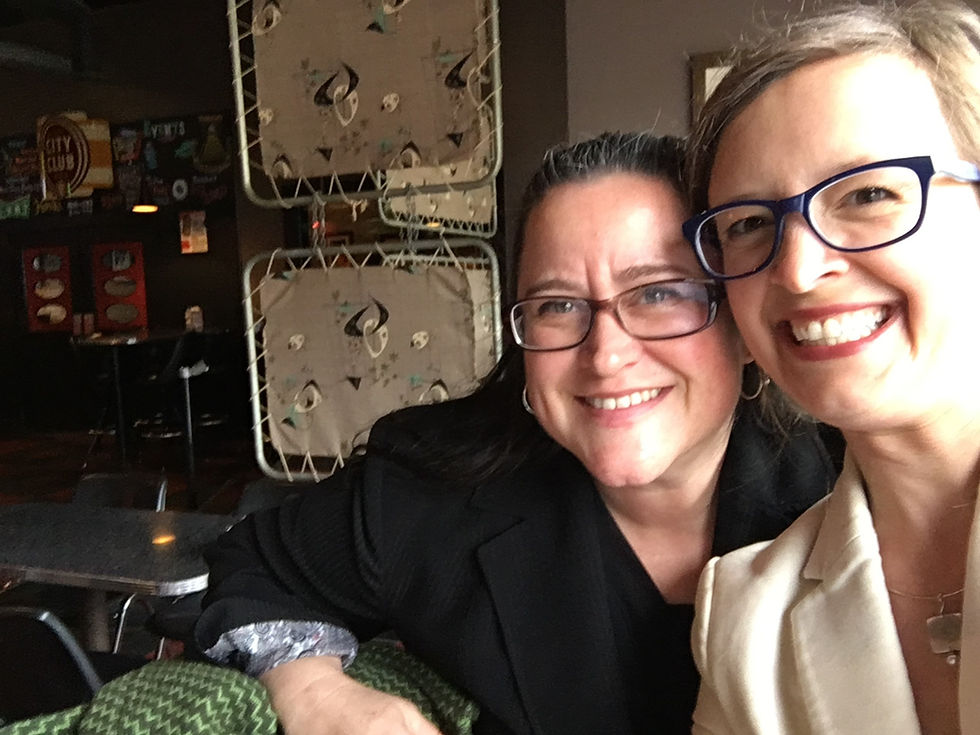Ask an Expert: Interview with Dr. Annie Pezalla
- Online Teaching Experts

- Jul 19, 2018
- 3 min read

Each week, we want to bring you fresh blogs full of important insights about teaching online. This week, the focus is on providing quality feedback to students on their writing.
Recently, Dr. M. Laurel Walsh sat down for a conversation with Dr. Annie Pezalla, both are scholars who have conducted research on the types of feedback that students tend to incorporate in their final drafts.
LW: Thank you, Dr. Pezalla it is a pure pleasure getting to see you! Our topic is providing efficacious feedback to adult students. What are some of the reasons that faculty find it difficult to give good feedback on academic writing?
AP: Good feedback is time consuming, and it’s much faster to scan and error-detect APA glitches than it is to really read student papers. To do so takes time and cognitive energy. It requires perspective taking. It requires a meta-level analysis of a body of work. That’s tough to do. And even more, it might not result in feedback that looks very impressive. By that, I mean that the feedback might be pretty short, like a paragraph or something or just a few track changes. On the surface, such an exchange might not look very substantive. A paper that’s filled with APA-related track changes, on the other hand, might look quite impressive. So I understand why so many faculty choose to address surface-level errors. There are certainly no shortage of them in many papers that our students submit, but that’s really not what our students need. What they need is a connection, a real connection, with their reader, someone who has taken the time to understand the overall thesis or message of their work.
LW: I love the focus on connection, because being aware of your reader is a skill in itself. Not everyone recognizes that becoming a skilled communicator in writing about writing (aka feedback) is a competency that can take you far. When I give my students actionable feedback, I am explicitly modeling a set of skills that they too can acquire with practice. Just as hiring managers toss out a cover letter full of grammar goofs, I want my students to know that in every single professional setting they will be in, their peers are looking at their written communication in all exchanges. What types of professional development did you receive to help you provide quality feedback to students on writing?
AP: Lucky for me, I was a dissertation editor years ago. We were mentored by other editors who each had unique styles. When I was being trained in as an editor, my colleague specifically told me that he felt good about an editing job if there was at least one track-changes comment on every page of a dissertation. I say that not to throw him under the figurative bus, but rather, to underscore the argument that this belief about what “good feedback” looks like is pervasive. Even editors preach it.
LW: When we did our research investigation on editorial feedback, I was really surprised how infrequently students incorporated boilerplate APA feedback in their final drafts. It has made me curious about what types of feedback work best for knowledge workers overall. Providing compelling, evidence laden, thoughtful and corrective (where some direct fixes occur) feedback is not just an academic skill that must be practiced to succeed in college. It is by far the most common professional service that I provide (and that I request) at work. As a student who is receiving the feedback, Annie, how do I know it is of high quality?
AP: Good feedback, in my opinion, looks different depending on the draft in question, but overall, it should reflect a deep read. That means that the reader has seen the entire document, has asked some thoughtful questions, and has given some content-related feedback for improvement, if necessary.
LW: Teachers need teachers, and editors need editors. Composition is iterative. When you do not know if a comma should go someplace, composition is arduous. As teachers, we have to do more than tell our students, “Awkward passage.” If you have time to point out an error, you should have time to assist in remediating that composition error for them moving forward.
AP: If all that’s needed in a student’s draft is a little APA polishing, then it makes sense to give only APA-related feedback, but as you have often said, “It would be CHRISTMAS if our jobs were solely to correct APA errors!” Our students usually need something more. They need a deep read by an invested reader.
Thank you, Dr. Annie! Your feedback on feedback is spot on!
Dr. Annie Pezalla and D. M. Laurel Walsh coauthored The Essential Guide to Critical Reading and Writing, with their colleague, Dr. Heidi Marshall and it is available on kindle here.




Comments